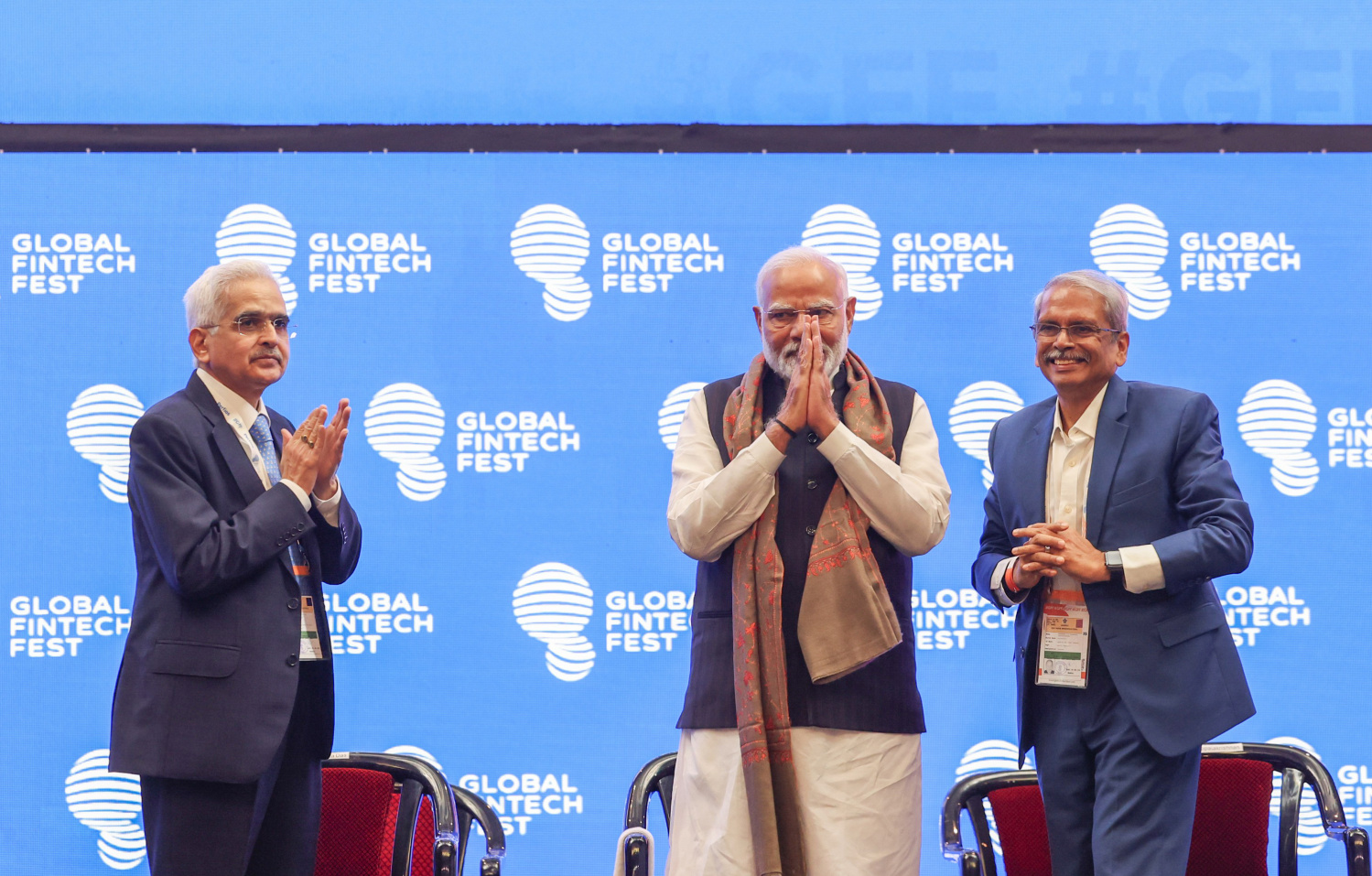
(Photo : IANS)
Mumbai: Prime Minister Narendra Modi attends the Global FinTech Fest
- India's fintech sector has received a record $31 billion investment, announced by Prime Minister Narendra Modi at the Global Fintech Fest 2024.
- The Jan Dhan Yojana initiative has connected over 530 million people to banks, significantly increasing financial inclusion, especially for women.
- The Jan Dhan, Aadhaar, and Mobile (JAM) trinity has revolutionized financial transactions, facilitating direct benefit transfers and increasing access to financial services.
- The government's support for the fintech sector and the potential for further growth and innovation highlight the promising future of fintech in India.
India's financial technology sector has witnessed a significant boost in the last decade, with Prime Minister Narendra Modi announcing a record investment of over $31 billion. This revelation was made during his address at the Global Fintech Fest (GFF) 2024, held in Mumbai, India's financial capital. The Prime Minister's speech underscored the rapid growth and innovation in the fintech sector, which has seen a 500% increase in startups over the past ten years.
The Prime Minister highlighted the role of affordable mobile phones, inexpensive data, and Jan Dhan Bank accounts in driving this fintech revolution. The Jan Dhan Yojana, a government initiative aimed at ensuring financial inclusion, has been instrumental in this regard. More than 530 million people in the country now have Jan Dhan accounts, connecting a population equivalent to that of the entire European Union to banks in just a decade.
This has been a significant achievement in terms of financial inclusion, particularly for women, with over 29 crore bank accounts set up for them so far. This initiative has opened up new opportunities for savings and investments, enhancing the ease of living for the entire world.
The JAM Trinity and Its Impact
The Prime Minister also spoke about the transformative impact of the Jan Dhan, Aadhaar, and Mobile (JAM) trinity on India's financial landscape. This combination of financial inclusion, unique identification, and mobile technology has revolutionized financial transactions in the country. It has facilitated direct benefit transfers, reduced corruption, and increased access to financial services, especially for those in rural and remote areas.
By linking bank accounts to individual identities and mobile technology, it has enabled a shift towards a more transparent and inclusive financial system. The Prime Minister also highlighted the role of the Unified Payments Interface (UPI) as a major example of fintech in the world. The UPI has enabled 24X7 banking services in every village and city in all weather conditions. This has been a significant step towards democratizing financial services and making them more accessible to the masses.
Government Support and Future Prospects
In addition to these achievements, the Prime Minister also spoke about the government's efforts to support the fintech sector. He mentioned the removal of the Angel Tax and emphasized the need for regulators to take significant steps to boost digital literacy and ensure the ethical use of AI to combat cyber fraud. These measures are expected to further strengthen the fintech sector and foster innovation.
The Prime Minister's speech also touched upon the potential dangers of a parallel economy and the role of fintech in addressing these challenges. He credited fintech with playing an impactful role in denting such a system and highlighted the emergence of transparency due to digital technology. He gave the example of the implementation of Direct Benefit Transfer used in hundreds of government schemes that has prevented leakages in the system.
The Prime Minister's address at the GFF 2024 reflects the government's commitment to fostering a robust and inclusive fintech ecosystem in India. It underscores the significant strides made in the sector over the past decade and the potential for further growth and innovation. As India continues to leverage technology to drive financial inclusion and democratize financial services, the fintech sector is poised to play an increasingly critical role in the country's economic growth and development. The record investment and the rapid growth of startups in the sector are testament to the promising future of fintech in India.









